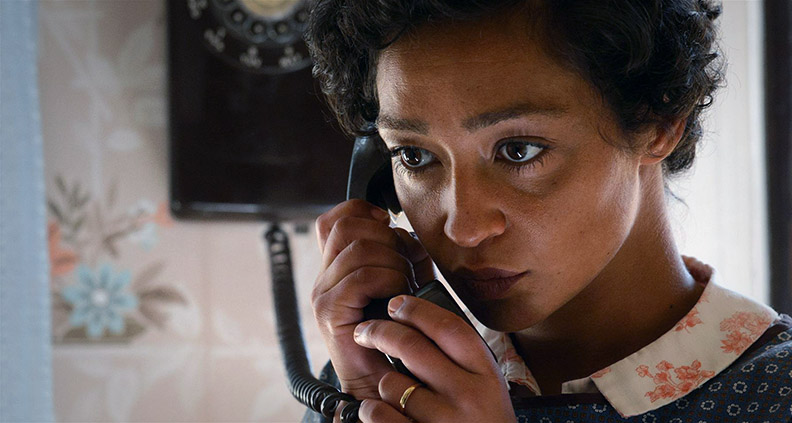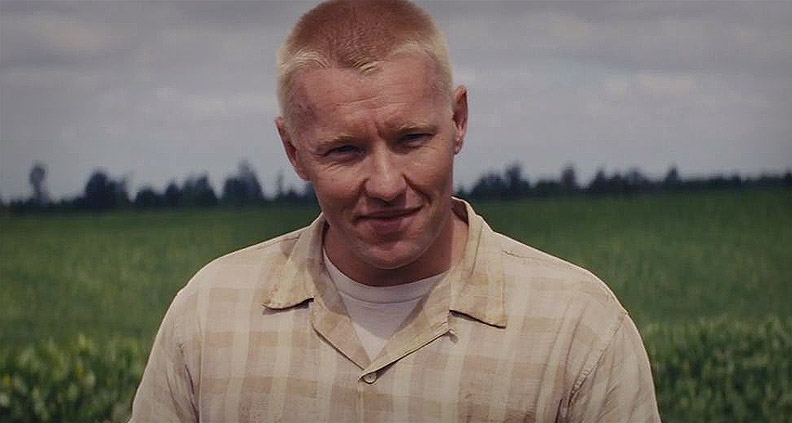Indie-pendent Study: Looking at ‘Loving v. Virginia’ Both Onscreen and Off
Each month in Indie-pendent Study, Su Fang Tham explores films that have inspired her to dive into specific areas of interest, prompting her to research and learn about the subjects being depicted in detail well beyond the scope of the original film. Who says watching movies can’t also be educational!
This month’s film: Loving (2016, dir. Jeff Nichols)
“Almighty God created the races white, black, yellow, malay and red. And he placed them on separate continents. And but for the interference with his arrangement there would be no cause for such marriages. The fact that he separated the races shows that he did not intend for the races to mix.” –Judge Leon Bazile, 1964, U.S. District Court for the Eastern District of Virginia
Waking up in the morning next to the one you love. Going to bed at night without fear that the Sheriff could barge into your bedroom and arrest you for marrying the “wrong” person. Being able to live where you choose with your family. These are all things taken for granted by almost everyone living in America today. But in 1958, many people were not afforded these norms of daily life.
Directed by Jeff Nichols, 2016’s Loving is the heartrending story of one such real-life couple: Mildred and Richard Loving, who in 1958 dared to defy Virginia’s Racial Integrity Act of 1924 and get married. As part of the state’s anti-miscegenation laws, interracial marriage illegal: Mildred was African-American with Native American ancestry, and Richard was white. In the film, Ruth Negga and Joel Edgerton play the couple.
The film—nominated for two Film Independent Spirit Awards for Nichols and Negga—wastes no time in getting to the point. It opens with Mildred telling boyfriend, Richard (a modest, taciturn construction worker) that she is pregnant. Days later, Richard proposes to her in a field half a mile down the road from her house. His surprise engagement gift: he’s bought an acre of land on that spot to build a house for them right in their hometown of Central Point in rural Virginia.
Richard and Mildred drive some 100 miles North to Washington, DC to be legally pronounced man and wife, and then return to their hometown. Five weeks later, with Mildred carrying their first child, both are dragged out of their bed in the middle of the night and thrown in prison. Seeing no other alternative, both plead guilty to “cohabiting as man and wife against the peace and dignity of the Commonwealth” and are sentenced to one year in prison. Judge Bazile agrees to suspend the sentence with the condition that they leave Virginia and do not return together for 25 years.
The Lovings move to DC, but after five years of living in the city in isolation from family and friends and having never quite adjusted to urban living, they decide to challenge their conviction in hopes of returning home for good. They lose appeal after appeal until the US Supreme Court agrees to hear their case in April 1967—nine years after they first got married. The rest, as they say, is history.

Director Jeff Nichols masterfully juxtaposes the emotionally charged story behind this landmark court case against the quiet, understated performances of his leads. The deplorable injustice, illogical argument for the status quo and couple’s unfair treatment is enough to make you want to pull your hair out. There’s no need to overact or add melodrama to inject more conflict into the scenes. As deftly portrayed by Edgerton, you feel Richard’s love for Mildred from every sinew of his being, every quiet utterance, every wistful stare from his haunted eyes.

In the film as in real life, Richard summed up their nine-year legal battle best when his lawyer asked what message he would like to convey to the Supreme Court Justices hearing his case: “…tell the Court I love my wife, and it is just unfair that I can’t live with her in Virginia.” It’s something so simple when reduced to its essence, yet the ordeal involved the efforts of the ACLU and a brigade of attorneys on all sides, spanned nine long years and went all the way to the US Supreme Court.
Further Study: Loving v. Virginia
As recently as 50 years ago, whites still could not marry non-whites in 16 states in the United States. And this was 13 years after the segregation of public schools was declared unconstitutional (1954, Brown v. Board of Education) and three years after the Civil Rights Act of 1964 came into being.
Here are a few items to shed some light on the legal landscape behind the 1967 milestone case:
- When the Lovings first got married in 1958, 24 states still enforced anti-miscegenation laws. By the time they were finally handed a victory in 1967, 16 states remained. Alabama was the last state to officially remove the law from its books in 2000.
- In 1965, when the Lovings appealed their convictions in Virginia Supreme Court, the court upheld the conviction because in its opinion, the lower court did not violate the Equal Protection Clause in adjudicating the case, as both the white and non-white spouse were given the same punishment for the crime (they were both sentenced to one year in prison).
- In the 1967 Supreme Court oral arguments, the Commonwealth of Virginia put forth the argument that because the anti-miscegenation laws prohibited both white and non-whites from marrying persons of another race/ethnicity and provided identical sentences to violators from both groups, the law could not be construed as racially discriminatory. The same argument was upheld by the U.S. Supreme Court in 1883 in Pace v. Alabama (106 U.S. 583).
- In a unanimous decision on June 12, 1967, the U.S. Supreme Court dismissed the arguments against overturning the Lovings’ conviction. Chief Justice Earl Warren’s opinion for the unanimous court included this long-awaited yet self-evident notion. “Under our Constitution, the freedom to marry, or not marry, a person of another race resides with the individual and cannot be infringed by the State.”
It’d be hard to find a more compelling or more satisfying “Hollywood ending” than the highest court in the land handing you a historic victory. Specifically, a victory that has changed countless lives in the past 50 years. Loving v. Virginia remains a testament to the Supreme Court’s ability to wrought positive, wide-scale social change.
For more from the 2017 Film Independent Spirit Awards, click here. Follow us on Twitter, Facebook and YouTube for more. Not a Member of Film Independent yet? Become one today.